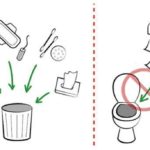Understanding the Benefits of Family Planning
Family life is a journey filled with joy, challenges, and responsibilities. To achieve growth and stability in the family, the application of family planning is an essential factor. In this article, we will introduce you to the benefits of family planning and ways to apply it in your daily life.
1. What is Family Planning?
Family planning is a term used to describe the process of regulating reproduction when a couple wants to control the number of children and decide the timing of pregnancy. It is a method that helps families achieve balance and control in childbearing.
 What is family planning?
What is family planning?
2. Benefits of Family Planning
Family planning plays an important role in the protection of women, as it allows them to be more proactive in pregnancy and significantly reduces the risk of using dangerous methods such as abortion. It also helps women prevent sexually transmitted infections and diseases like AIDS.

Benefits of family planning
3. Methods of Implementing Family Planning
3.1 Implementing Family Planning Using Natural Methods
Implementing family planning using natural methods involves couples avoiding pregnancy by using natural techniques. One popular method is calculating the safe time for sexual intercourse and avoiding fertilization.

Implementing family planning using natural methods
3.2 Implementing Family Planning Using Contraceptive Measures
For men, using condoms is the most common method to ensure safe sexual intercourse. The use of condoms helps limit sperm contact with a woman’s eggs and prevent the fertilization process. According to statistics, condoms have a 99.98% effectiveness in preventing pregnancy. For women, a common method of contraception is using birth control pills.

Implementing family planning using contraceptive measures
3.3 Contraception with the Use of Intrauterine Devices (IUDs)
The use of intrauterine devices (IUDs) helps prevent the attachment and development of fertilized eggs in the uterus. It is a method that does not significantly affect a couple’s daily sexual activity. However, women using IUDs need to pay attention to personal hygiene to avoid infections and the risk of sexually transmitted diseases.

Contraception with the use of intrauterine devices (IUDs)
Family planning plays an important role in building a healthy, happy, and sustainable family life. We hope that this article provides you with useful knowledge to help you create a fulfilling family.
Source: Vinmec.com






































